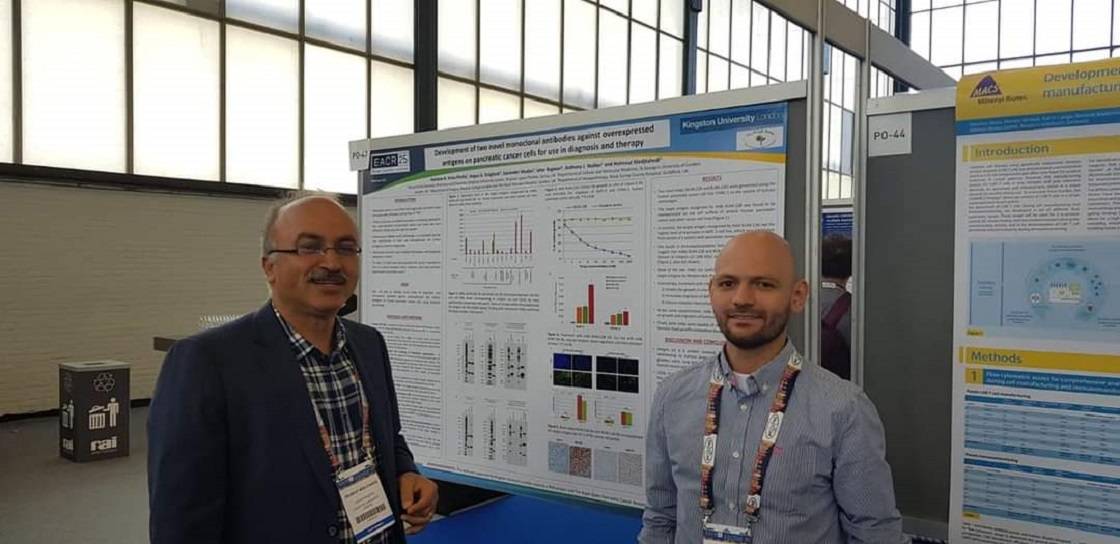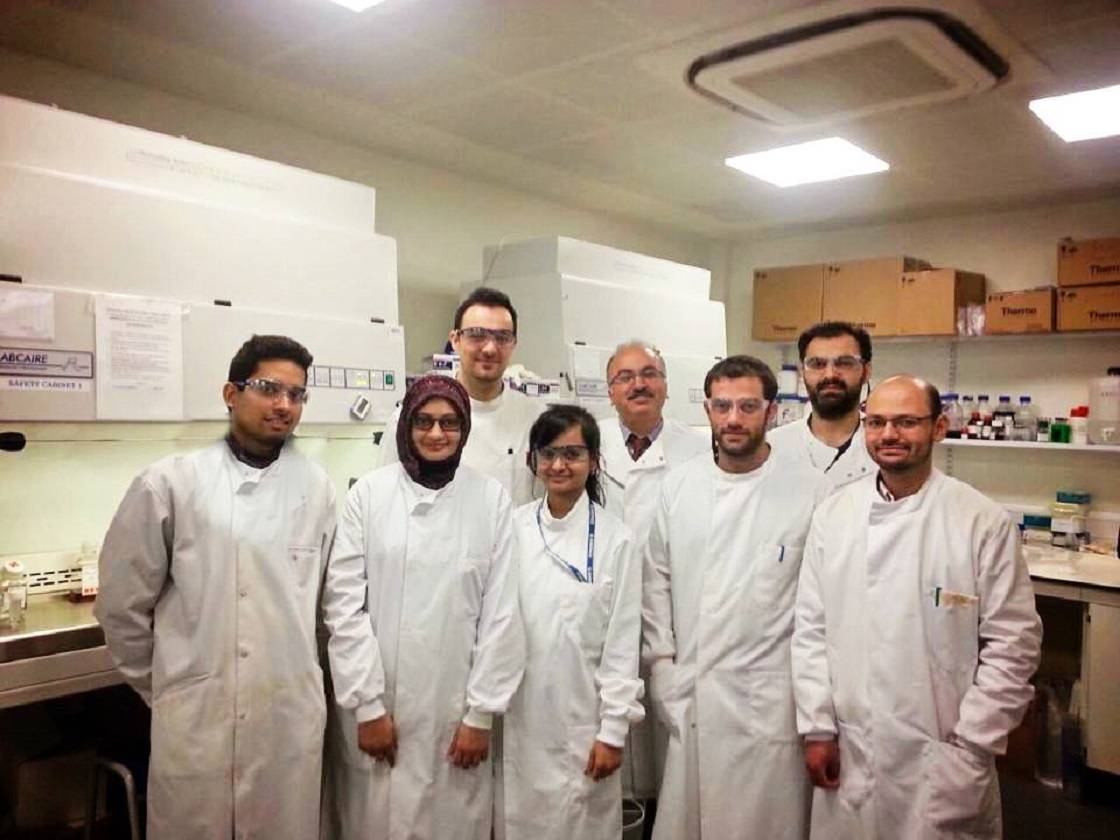Commercial licensing of antibodies developed by Kingston University
Knowledge Exchange Framework perspective demonstrated: Intellectual property and commercialisation
In 2021 global biopharmaceutical giant, Merck, successfully licensed two monoclonal antibodies developed by Kingston University that will be used in the research of pancreatic cancer, and to potentially advance its diagnosis and treatment as well as other cancer types.
Pancreatic cancer can be an aggressive form of cancer with few treatments available and a low survival rate, and there is a need for development of more effective and less toxic treatments. Professor of Cell Biology, Helmout Modjtahedi, from Kingston's School of Life Sciences, Pharmacy and Chemistry is a specialist in cancer biology, therapeutics and diagnostics. He and his team have been working for a number of years on creating antibodies that can be used in cancer-related research and to develop diagnostics and treatments with the aim of improving patient survival rates.

Significant scientific breakthrough
The antibodies work by targeting abnormal cells expressing high levels of proteins (such as cancer cells) and acting to restore, enhance, modify or mimic the immune system's attack on cells. Antibodies are highly specific for the target antigen or protein, and unlike other cancer treatments, they are not as toxic as cytotoxic drugs used in cancer chemotherapy and cause very few patient side-effects.
Professor Modjtahedi undertook the work in Kingston University's Cancer Research laboratories using antibody technology to discover proteins with high levels of expression in pancreatic cancer and other types of human cancers. This approach also led to the production of large volumes of identical antibodies against such proteins to be used not only as research tools to understand the role of these proteins in the progression of human cancers, but also in the diagnosis and treatment of cancers.
Whilst Kingston University has retained the intellectual property rights to undertake their own in-house research with various antibodies, two of the antibodies have been licensed to Merck, to sell to other researchers across the globe who wish to use it for their research into pancreatic cancer and other types of human cancer.

Plans for the future
This significant scientific breakthrough, offering potentially life-saving benefits, demonstrates that Kingston University is a key player in the science and research community. Our ambition is to develop innovation that delivers real world impact, making use of our close links with industry and our ability to commercialise our research outputs.
The University is continuing to develop other antibodies which will help advance the research and development of cancer treatments, and also have the potential for licensing and commercialisation in business and industry.


